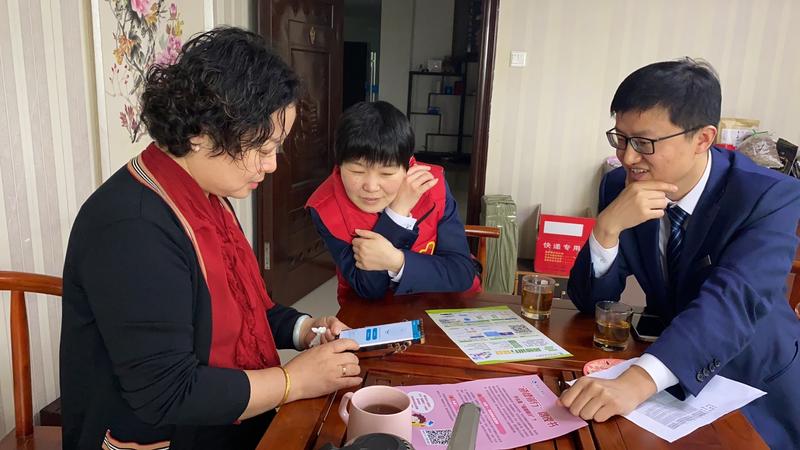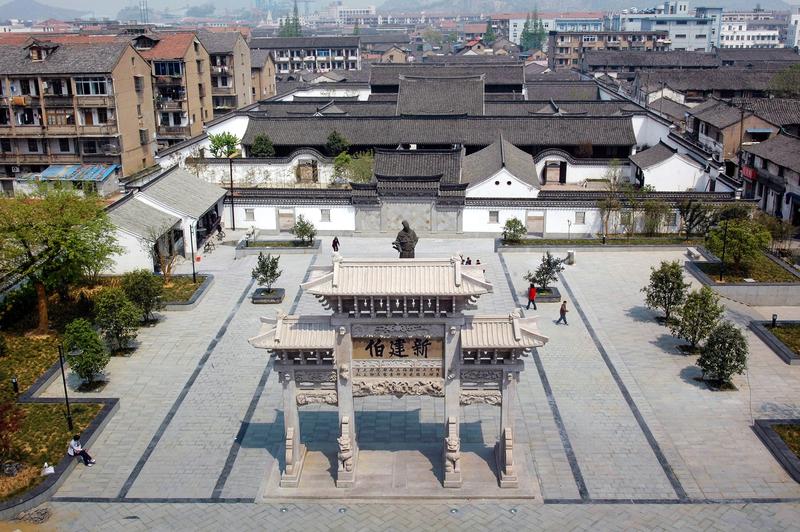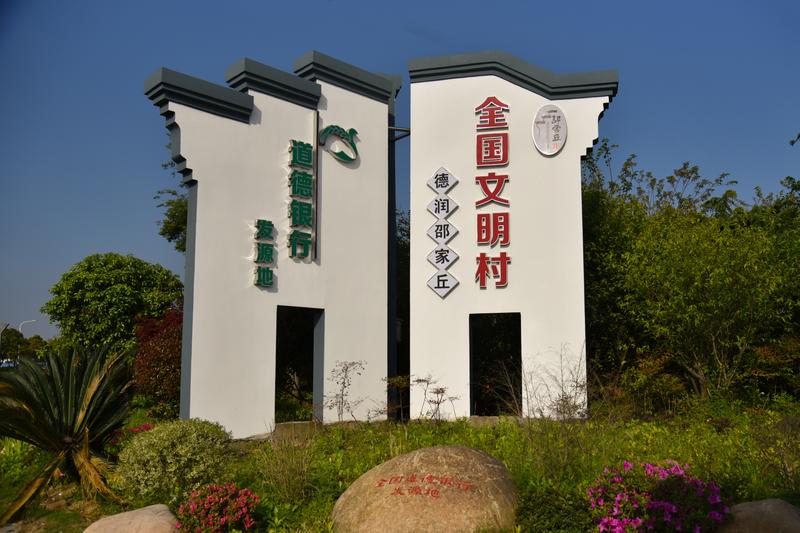Ancient wisdom helps guide China's modernization drive, particularly through programs dealing with societal development and responsibility, Ma Zhenhuan reports in Ningbo, Zhejiang.
 Volunteers teach a resident (left) how to access the "Moral Bank" on her phone in Yuyao, Zhejiang province. (PHOTO PROVIDED TO CHINA DAILY)
Volunteers teach a resident (left) how to access the "Moral Bank" on her phone in Yuyao, Zhejiang province. (PHOTO PROVIDED TO CHINA DAILY)
Even though more than 500 years have passed, the thoughts of Wang Yangming (1472-1529), one of China's leading neo-Confucian philosophers, still live on and exert a profound influence on Chinese people.
Wang was also a calligrapher, military general, politician and writer.
Neo-Confucianism is the revival of the philosophical, social and ethical thoughts of Confucius. Wang is best known for his doctrine of the "unity of knowing and acting". It states that knowledge and action should be combined, and that one can acquire knowledge through actions.
In his principles, the "knowledge "refers to liangzhi (innate knowing), the capacity for moral judgement, rather than factual knowledge.
Wang held the idea that everyone knows, from birth, the difference between right and wrong. He claimed that such knowledge is intuitive and not acquired by learning.
Wang trusted in the power of "innate knowing" and believed that there is a sage in everyone, and that it is easy to be a "fully moral agent", because all we need to do is to get rid of selfish human desires. That way, the good will be perceived and evil will be removed.
 Bank clerks help a resident apply for a loan with his "moral credit" at the Yuyao Rural Commercial Bank. (PHOTO PROVIDED TO CHINA DAILY)
Bank clerks help a resident apply for a loan with his "moral credit" at the Yuyao Rural Commercial Bank. (PHOTO PROVIDED TO CHINA DAILY)
To commemorate the 550th anniversary of the ancient philosopher's birthday, the World Yangming Philosophy Conference was held in Yuyao and Shaoxing in East China's Zhejiang province in late November.
Revolving around two themes — "cultural resonance in a community with a shared future for mankind "and "Yangming philosophy and common prosperity" — researchers from different disciplines and backgrounds discussed the theories and practices of Wang's philosophy during the conference.
Li Guoqiang, associate dean of Chinese Academy of History, highlighted the application of Wang's thoughts to China's modernization.
He suggested thoughts, such as "innate knowing" and the "unity of knowing and acting", be connected to theories of Marxism, which will be developed into a strong workforce for the modernization drive.
 A painting of a vineyard appears on the wall of a house in Shaojiaqiu village of Yuyao. (PHOTO PROVIDED TO CHINA DAILY)
A painting of a vineyard appears on the wall of a house in Shaojiaqiu village of Yuyao. (PHOTO PROVIDED TO CHINA DAILY)
Yang Guorong, president of China Philosophy History Association, stressed the similarities between Wang's thoughts and the idea of common prosperity.
"We can tell from Wang's principles that they intend to make people aware of their responsibilities to society, which reflects the idea of common development," said Yang. "Common prosperity means striving for all people. The idea behind it could be traced back to traditional Chinese culture, including Confucianism. We can also draw inspiration from thoughts, including the 'unity of knowing and acting' and 'innate knowing', to figure out ways to achieve common prosperity."
Zhu Hanmin, vice-chairman of the International Confucian Association, pointed out that China's commitment to building a community with a shared future for mankind to confront challenges, such as political, economic and military issues, is rooted in its traditional culture, especially Wang's belief that all things in the universe were originally one.
"His thought is practical and reveals a humanistic spirit similar to 'a community with a shared future for mankind'," said Zhu.
 An aerial view of Wang Yangming's former residence in Yuyao. (PHOTO PROVIDED TO CHINA DAILY)
An aerial view of Wang Yangming's former residence in Yuyao. (PHOTO PROVIDED TO CHINA DAILY)
Chen Zhiping, president of the Chinese Society on Ming Dynasty History, also insisted that Wang's philosophy is still inspiring in modern times.
"Wang claimed that social governance is based on changing people's thoughts. We can take a page from it when building a community with a shared future for mankind."
In recent years, Yuyao, Wang's birthplace, has been utilizing his thoughts in the city's development by promoting the "Moral Bank "program.
Under the program, moral behaviors of residents are quantified into "moral points". In addition to self-evaluation, different departments, including public security, tax, market regulation and the local banks, and big data technologies, are all involved in the evaluation procedures.
Residents can earn points through activities, such as volunteer services. Those who get the required amount of "moral points" are allowed to get loans at cheaper rates of interest at the Yuyao Rural Commercial Bank. They can also redeem over 300 services, including free parking and discounts on haircuts, with "moral points".
 Slogans promoting the "Moral Bank" are seen at the entrance of Shaojiaqiu village. (PHOTO PROVIDED TO CHINA DAILY)
Slogans promoting the "Moral Bank" are seen at the entrance of Shaojiaqiu village. (PHOTO PROVIDED TO CHINA DAILY)
Due to undeveloped infrastructure and disputes between villagers, Shaojiaqiu village in Yuyao was known as a "village of difficulties".
But things have changed since 2012, when the "Moral Bank" was launched in the village and locals were encouraged to start their own businesses and earn "moral points "to get loans.
The bank has offered unsecured loans for 120 households in the village. And villagers have donated more than 10 million yuan ($1.4 million) to infrastructure construction and charitable activities in recent years.
Yu Yin in Ningbo contributed to this story.
Contact the writer at mazhenhuan@chinadaily.com.cn


